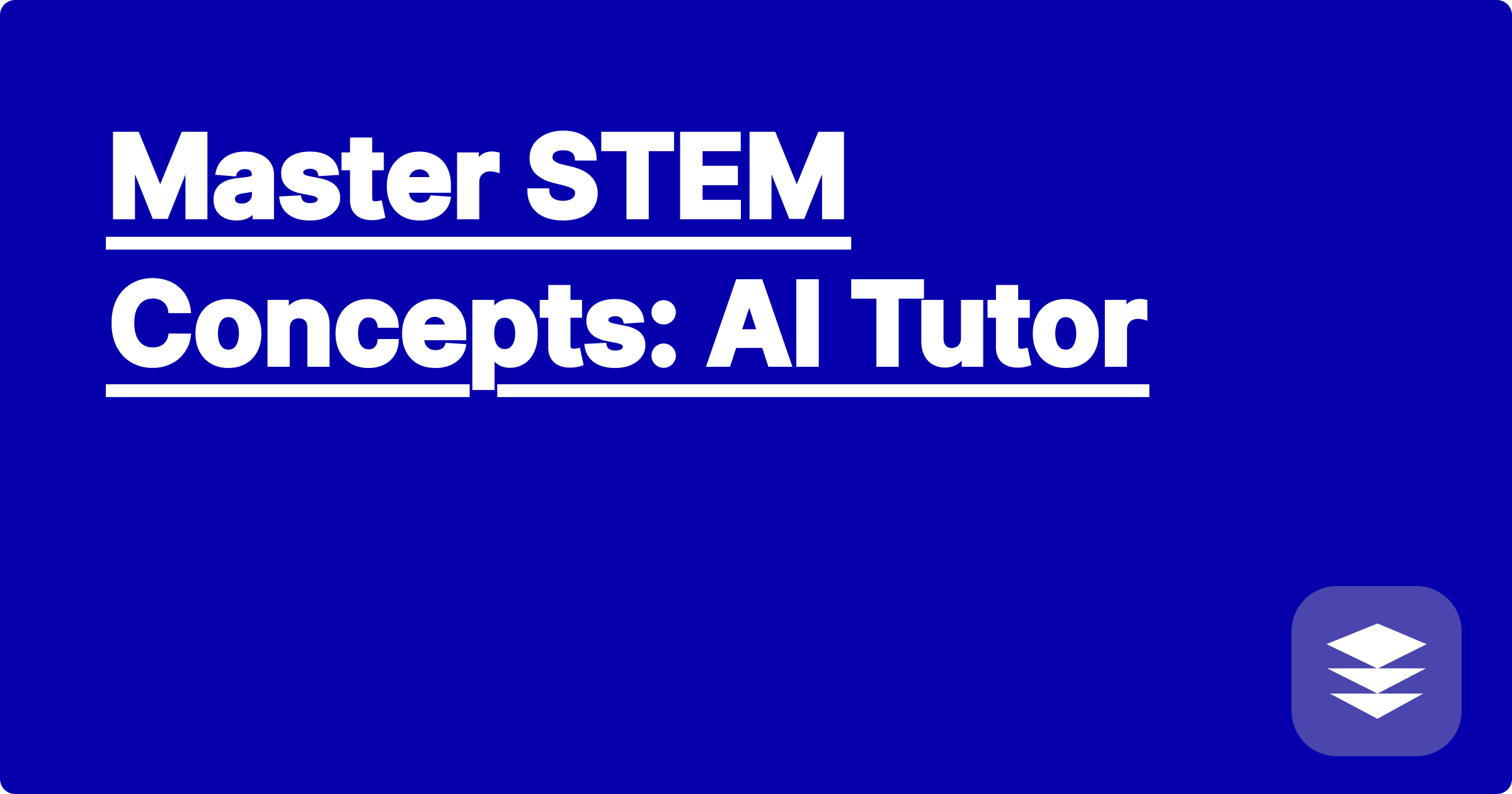
STEM fields present a unique challenge: the sheer volume and complexity of information students and researchers must master. From intricate mathematical proofs to complex chemical reactions and intricate engineering designs, the learning curve can be steep. Artificial intelligence offers a powerful new approach to navigating these complexities, acting as a personalized tutor capable of providing on-demand explanations, generating practice problems, and even assisting with research tasks. This emerging technology has the potential to revolutionize how we learn and conduct research in STEM, making complex concepts more accessible and empowering individuals to reach their full potential.
This shift towards AI-powered learning is particularly relevant in today's fast-paced academic and research environment. STEM students face increasing pressure to excel in highly competitive fields, while researchers strive to stay at the forefront of innovation. AI tutors can provide the personalized support and resources needed to succeed, offering tailored guidance, 24/7 availability, and the ability to adapt to individual learning styles. By embracing these tools, STEM students and researchers can gain a significant advantage, enhancing their understanding, improving their productivity, and ultimately accelerating their progress.
Many STEM subjects build upon a foundation of interconnected concepts. A gap in understanding one fundamental principle can create a cascading effect, hindering the ability to grasp more advanced topics. Traditional learning methods often struggle to address these individual learning gaps effectively, leaving students feeling lost and discouraged. Furthermore, the rapid pace of advancements in STEM fields means that staying up-to-date with the latest research and technologies is crucial. Traditional textbooks and lectures can quickly become outdated, leaving a gap between what is taught and what is needed in the real world. Researchers also face the challenge of sifting through vast amounts of data and literature, a time-consuming process that can impede progress.
AI tools like ChatGPT, Claude, and Wolfram Alpha offer a dynamic and personalized approach to STEM learning and research. These tools leverage the power of natural language processing and machine learning to provide on-demand explanations, answer questions, and even generate practice problems tailored to specific learning needs. For example, a student struggling with calculus can use Wolfram Alpha to visualize complex functions, explore step-by-step solutions to derivatives and integrals, and even generate practice problems with varying levels of difficulty. Similarly, a researcher investigating a specific protein can use ChatGPT to summarize relevant research papers, identify key findings, and even suggest potential avenues for further investigation. This interactive and adaptive approach to learning empowers individuals to take control of their education and research, fostering deeper understanding and accelerating progress.
Engaging with these AI tools is remarkably straightforward. First, identify the specific concept or problem you need help with. Formulate a clear and concise question or prompt that accurately reflects your area of inquiry. Then, input this prompt into your chosen AI tool, whether it's ChatGPT for conceptual explanations, Wolfram Alpha for mathematical computations, or Claude for research assistance. Carefully review the output generated by the AI. Verify the information provided, paying attention to the reasoning and logic behind the explanations or solutions offered. If necessary, refine your initial prompt or ask follow-up questions to delve deeper into the topic. This iterative process of questioning and refinement allows you to actively engage with the material, fostering a deeper understanding and promoting critical thinking skills.
Consider a student learning about the concept of eigenvalues and eigenvectors in linear algebra. They can use Wolfram Alpha to compute the eigenvalues and eigenvectors of a given matrix, visualize the transformation represented by the matrix, and even explore the geometric interpretation of these concepts. For instance, inputting the matrix {{2, 1}, {1, 2}} into Wolfram Alpha will yield the eigenvalues 3 and 1, and their corresponding eigenvectors. Another example involves a researcher studying the chemical reaction A + B → C. They can use ChatGPT to understand the reaction mechanism, explore the factors affecting the reaction rate, and even predict the equilibrium constant under different conditions. By prompting ChatGPT with "Explain the reaction mechanism of A + B → C," the researcher can receive a detailed explanation of the steps involved in the reaction. These practical applications demonstrate the versatility and power of AI tools in facilitating STEM learning and research.
To effectively integrate AI tools into your STEM studies and research, consider the following strategies. First, actively engage with the material, asking questions and seeking clarification whenever needed. Don't passively accept the information provided by the AI; instead, treat it as a starting point for further exploration and critical analysis. Second, develop strong foundational knowledge in the core concepts of your field. AI tools are most effective when used to supplement and enhance existing understanding, not as a replacement for fundamental learning. Third, experiment with different AI tools to find the ones that best suit your learning style and research needs. Each tool has its strengths and weaknesses, so exploring different options can help you maximize their potential.
Conclude by emphasizing the importance of continuous learning and adaptation in the rapidly evolving landscape of STEM. Embrace AI tools as valuable resources that can empower you to achieve your academic and research goals. By actively exploring these technologies and integrating them into your learning and research workflows, you can unlock new levels of understanding and accelerate your progress in the exciting world of STEM.
AI Physics Solver: Ace Your HW
AI Lab Assistant: Automate Tasks
STEM Success: AI-Driven Learning
AI Chemistry Solver: Get Help Now
AI Data Viz: Visualize Your Data
Boost Your Grades: AI Study Tools
AI Research Assistant: Find Sources